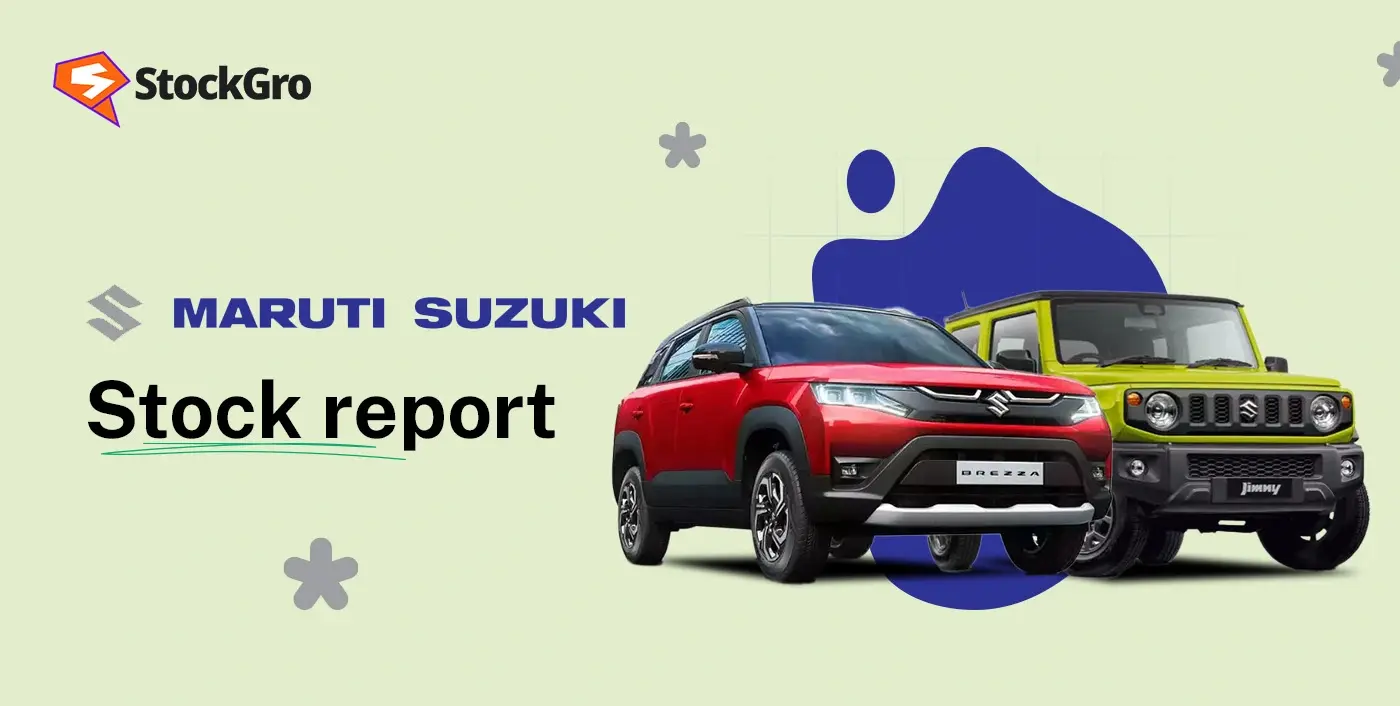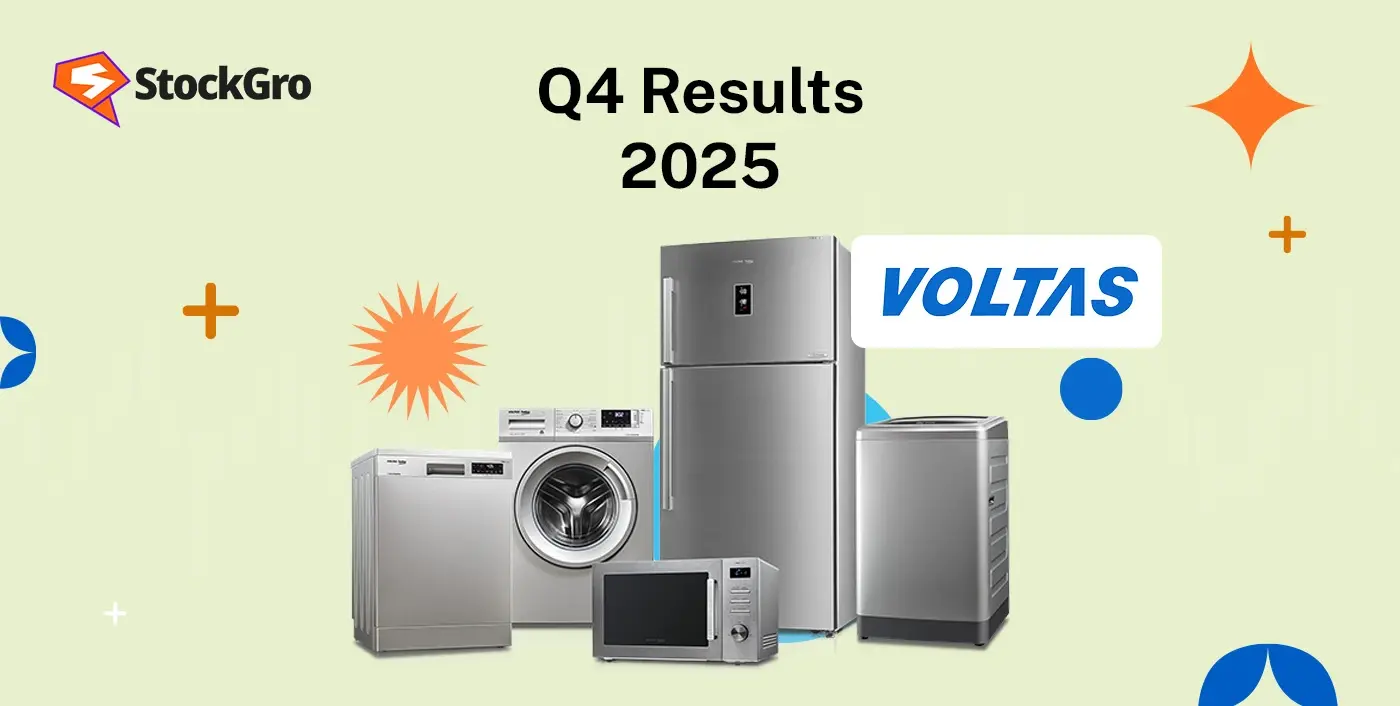
Stock overview
| Ticker | MARUTI |
| Sector | Automobile |
| Market Cap | ₹ 3,90,740 Cr |
| CMP (Current Market Price) | ₹ 12,585 |
| 52-Week High/Low | ₹ 13,680 / 10,725 |
| P/E Ratio | 27x |
| Beta | 1.1 (Moderate volatility) |
About Maruti Suzuki
Maruti Suzuki is India’s largest passenger vehicle manufacturer with ~42% market share as of FY24. A subsidiary of Suzuki Motor Corporation (Japan), MSIL operates through two key plants in Haryana and one upcoming facility in Gujarat (via SMC).
The company offers a wide range of hatchbacks, sedans, SUVs, and CNG/Hybrid vehicles under well-known models like Alto, WagonR, Swift, Baleno, Brezza, Grand Vitara, and Ertiga.
Primary growth factors for Maruti Suzuki
1. SUV portfolio expansion
Maruti has significantly improved its SUV lineup through the Brezza, Grand Vitara, Fronx, and Jimny. SUV contribution has risen from ~12% in FY21 to ~33% in FY25.
MSIL is catching up with market trends, and its aggressive SUV push is closing the gap with Tata and Hyundai.
2. CNG & Hybrid leadership
The company leads the CNG market (~70% share) and has introduced strong hybrid variants (Grand Vitara, Invicto) with impressive fuel efficiency. Its dominance in alternative fuel options offers cost-conscious Indian consumers a compelling value proposition.
3. Export opportunity
Maruti’s exports are growing strongly (FY25: 3,3 lakh units), and Suzuki’s global network is being leveraged for increased international penetration. Global diversification is helping reduce over-dependence on domestic demand.
4. Capacity expansion
The new Kharkhoda (Haryana) plant is expected to go live in 2025-26, adding 1 million units of capacity over 8 years. MSIL is future-proofing its capacity to meet the growing demand curve.
Q4 FY25 Financial Performance
| Metric | Q4 FY 25 | YoY Growth | QoQ Growth |
| Sales Volume | 6,04,635 | 3.5% | 6.8% |
| Net Sales | ₹ 38,848 cr | 5.9% | 5.6% |
| EBIT | ₹ 3,392 cr | -14,2% | -7.4% |
| PAT | ₹ 3,711 cr | -4.3% | 5.3% |
- Maruti Suzuki has delivered a healthy growth in sales units both at a YoY and at a QoQ level.
- There was an impact on Maruti Suzuki’s overall profitability due to rising pressure on overall costs.
- Higher sales promotion & advertising expenses put further pressure on the profitability.
Detailed competition analysis for Maruti Suzuki
| Company | Market Cap | Revenue | P/E Multiple | RoCE |
| Maruti Suzuki | ₹ 3,90,,700 cr | ₹ 38,848 cr | 27 x | 22% |
| M&M | ₹ 3,64,100 cr | ₹ 41,470 cr | 29 x | 14% |
| Hyundai | ₹ 1,38,200 cr | ₹ 16,240 cr | 23 x- | 51% |
| Tata Motors | ₹ 2,39,000 cr | ₹ 113,575 cr | 8 x | 20% |
Maruti Suzuki Competitive Advantages:
- Maruti leads in volume, service network, and brand recall, though it is behind peers in pure electric offerings.
- Maruti enjoys a 40-45% share in the automobile market, and with new product offerings and innovation, Maruti is likely to maintain its market share.
- MSIL has taken a cautious approach toward EVs, focusing instead on hybrids and CNG. Its first EV (eVX SUV) is expected to launch by FY26, with in-house battery tech via Suzuki Motor Gujarat.
Company valuation insights: Maruti Suzuki
As per the Discounted Cash Flow analysis:
It estimates the intrinsic value of Maruti Suzuki shares based on expected future cash flows:
- Intrinsic Value Estimate: ₹13900 per share
- Upside Potential: 15%
- WACC: 10.6%
- Terminal Growth Rate: 2.4%
Valuations are reasonable given earnings visibility, margin expansion, and strong brand equity.
Major risk factors affecting Maruti Suzuki
- EV disruption: Delayed EV transition could hurt MSIL in a rapidly shifting market.
- Raw material inflation: Higher steel and aluminium prices could compress margins.
- Competitive pricing: Intense price wars, especially from Tata/Hyundai in SUV/EVs.
- Regulatory risks: Emission and safety norms are evolving fast.
- Global supply chain: Any disruptions in chip supply can impact production.
Technical analysis of Maruti Suzuki
- Resistance: ₹12,750
- Support: ₹12,000
- Momentum: Neutral
- RSI (Relative Strength Index): 52 (Neutral)
- 50-Day Moving Average: ₹11,890
- 200-Day Moving Average: ₹12,276
- MACD: Positive crossover; bullish divergence
Technically bullish with potential for breakout above ₹12,750. Short-term consolidation is healthy.

Maruti Suzuki stock recommendation by Ketan Mittal
Recommendation: Buy on dips / Long-term accumulate
Target Price: ₹14,000 (12-month horizon); ₹13,300 (6-month horizon);
Investment Horizon: 2–4 years for stable returns
Rationale
Recommend a Buy on Dips / Accumulate approach for Maruti Suzuki based on:
Strong growth in high-margin SUVs and hybrid vehicles
Best-in-class cost structure, wide rural network
Superior financials with net cash position
Reasonable valuations with scope for rerating
Long-term beneficiary of India’s rising disposable incomesIf you found this helpful and want regular stock trade calls, check out my StockGro profile here: https://stockgro.onelink.me/vNON/6m6ykj0dConclusion
Maruti Suzuki remains a foundational long-term play on India’s auto consumption story. It combines deep market penetration, strong balance sheet, expanding premium product portfolio, and a growing export base. The company is transitioning thoughtfully into hybrids and capacity expansion while holding the leadership baton.

